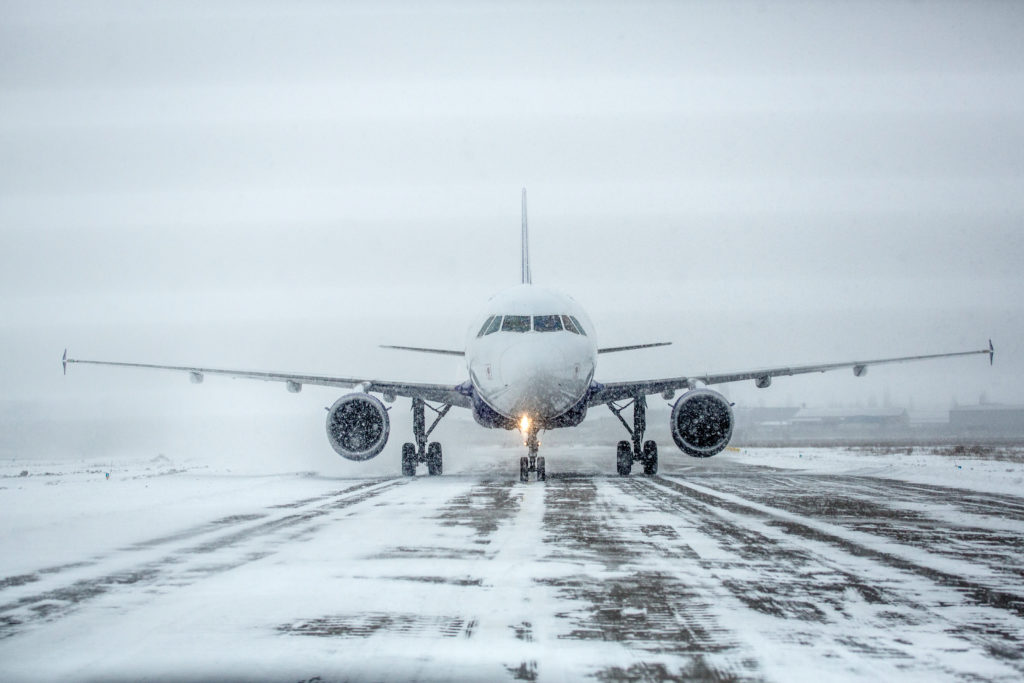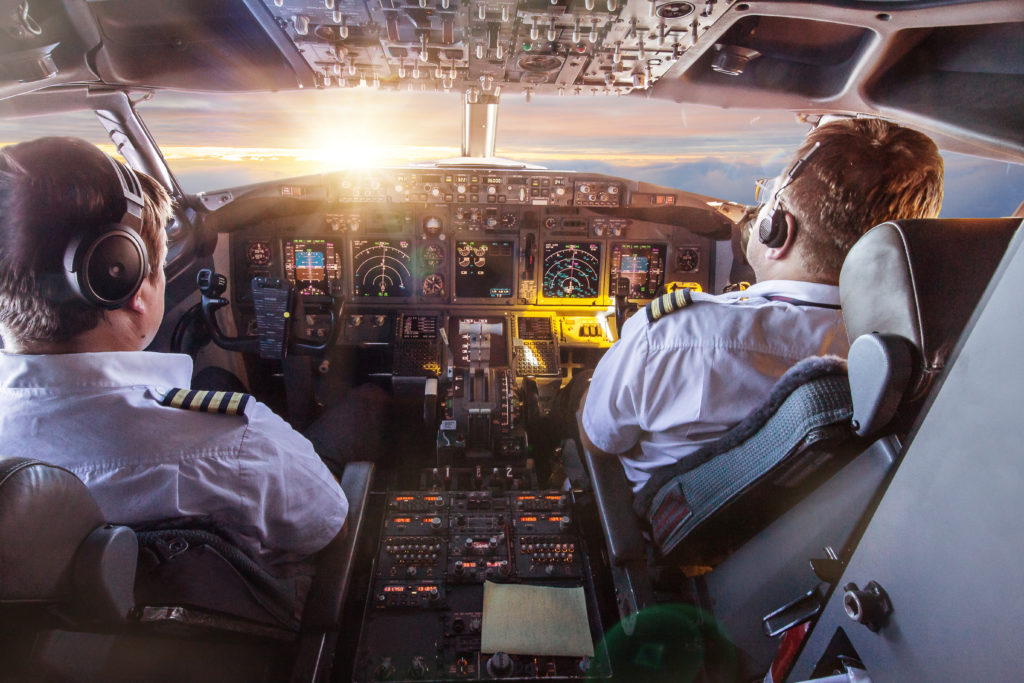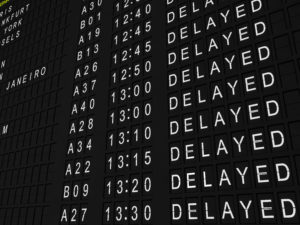Flight delays are an unfortunate but common part of air travel. Many travelers don’t pay close attention to the cause or reason behind the delay, but it’s a detail that is very important to the airline and your wallet. The cause of the delay is crucial to determining if passengers booked on the delayed flight are entitled to any type of compensation. Here’s everything you need to know about flight delays.
Flight Delays Due to Weather

This is the most common delay travelers will encounter—not just because air travel is at the mercy of the weather, but also because airlines use this reason for delays frequently (sometimes more so than they should).
Weather delays can be caused by the obvious storm right over the airport you’re in, but sometimes the delay has nothing to do with what you’re seeing outside the terminal windows.
Bad weather can cause departure delays pushing back from the gate, long lines waiting for take-off because of increased space between departing aircraft, landing/arrival delays, and a single strike of lightning near the runway can suspend airport operations altogether until the runway can be inspected for debris. This can impact an aircraft at its departure point en route to operate your flight causing a weather delay in an airport with perfect weather.
Additionally, the weather an aircraft encounters while following its scheduled flight path can cause a delay. Depending on the altitude a storm reaches, aircraft may need to divert around the weather because it’s unsafe to fly through it. This makes the actual flight time from the departure airport to the arrival city longer than expected and may cause a delay for the next flight the aircraft will operate.
Generally speaking, weather delays are outside of the airline’s control and therefore the airline is not responsible to compensate passengers for expenses incurred. This includes food while waiting for the flight to depart, and unexpected overnight stays due to a missed connection.
However, there are some instances where a little bit of research into your weather delay may net you some compensation. If your flight is first delayed for a mechanical reason but then encounters a delay en route due to weather, the airline may try to state that the reason for your delay was due to weather to avoid paying any compensation. But having access to a screenshot, emails or a text message from the airline stating the original issue will make your plea for assistance much easier.
Related: Strategies to Get a Refund on Nonrefundable Airfare
Technical or Mechanical Flight Delays
Any issue the airline may encounter with the aircraft, the aircraft’s equipment or emergency supplies, generating a flight plan, delays in loading luggage onto the plane, catering, or refueling would fall under a “technical” delay. Some airlines use the term “technical delay” to encompass any issue aside from weather and staffing that might cause the flight to depart late.
There are a few airlines that will separate out a “mechanical” from a “technical” issue. A mechanical delay occurs while awaiting mechanics or engineers to repair something that is broken or which needs to be replaced. That could be anything from changing a tire to fixing an onboard system or computer in the flight deck, to repairing the ashtrays in the bathroom. Yes, the ashtrays! Although the ashtrays aren’t used because smoking is no longer allowed, the ashtrays must be operational before the flight can leave to ensure there is an approved and safe location to extinguish a cigarette should one be lit.
Although some of these issues arise unexpectedly, these types of delays are considered to be within the control of the airline. Therefore while you wait to continue on to your destination the airline will generally reimburse for expenses or may offer you vouchers for a free hotel stay or food until they can connect you to a flight to complete your trip.
Crew Rest Flight Delays

Especially in a COVID-19 world, you may be encountering crew rest issues more frequently than in years past. A crew rest delay occurs when the pilots and/or flight attendants that are scheduled to work your flight didn’t have their required amount of time “on the ground” between “duty days.”
The regulations define “rest” as the time between flights from the moment the aircraft parks (or the cabin door opens), to the time they arrive at the airport the next day. Commuting to and from the airport, to the hotel, finding something to eat, etc. all counts as “rest.”
The staffing shortages created by the pandemic have caused an increased amount of crew rest issues because airlines are using a smaller amount of employees to work an almost normal flight schedule. A small weather or technical delay may cause a crewmembers’ “rest” to go below the legal limits. In this situation, the airline would be in “control” of the delay and would most likely have to offer compensation or refunds for extra costs, fees, and meals.
Related: Which Airlines Are Requiring COVID-19 Vaccines for Employees?
What Are My Flight Delay Rights?
Every airline has a “contract of carriage.” It’s the terms and conditions that travelers agree to by way of a checkbox when purchasing a ticket. Each airline details what delays and situations are due compensation, and in some cases, how much they’ll provide.
You can find the contract of carriage listed at the bottom of every airline’s website, which will tell you what compensation you are entitled to for delays.






